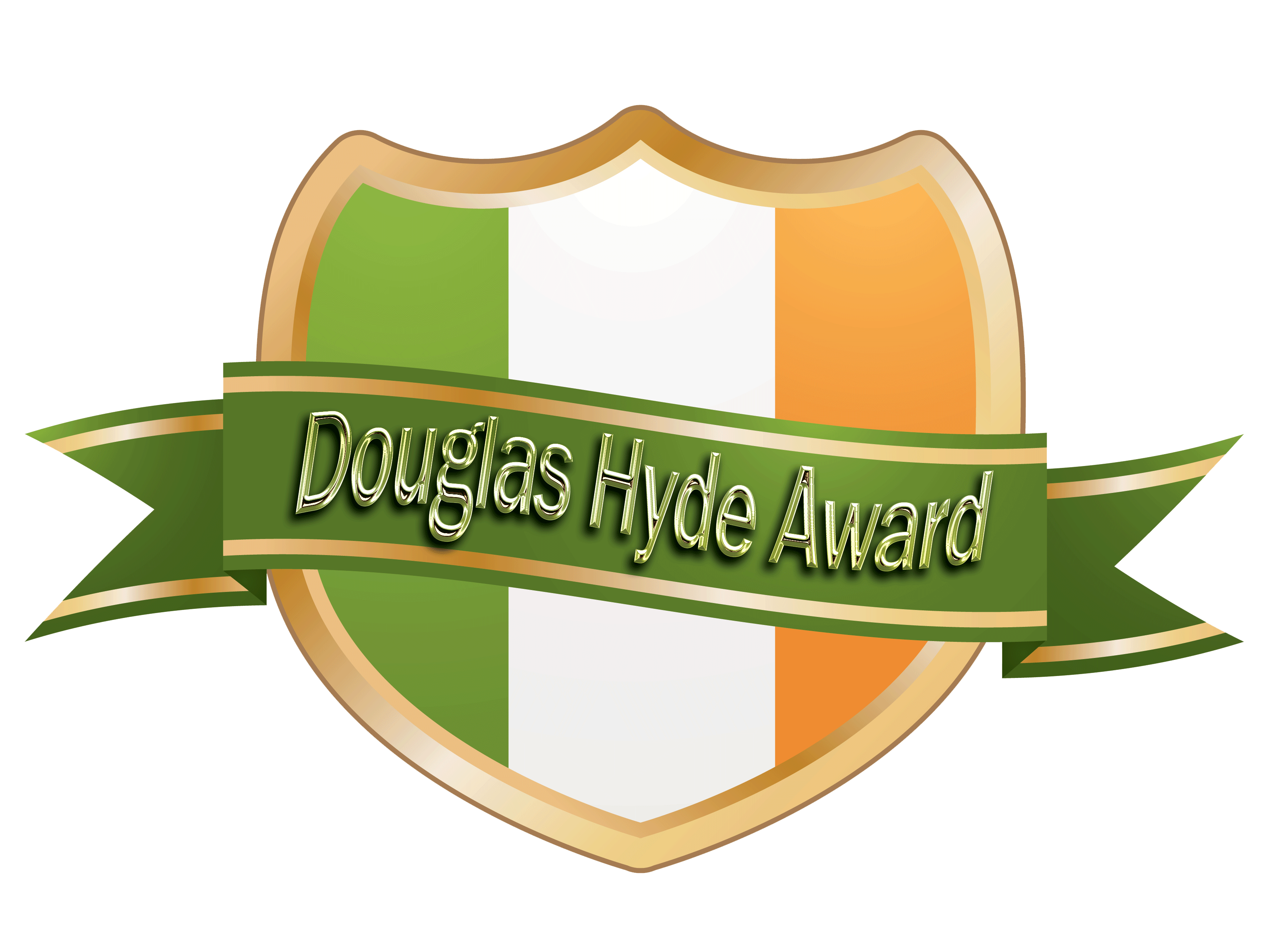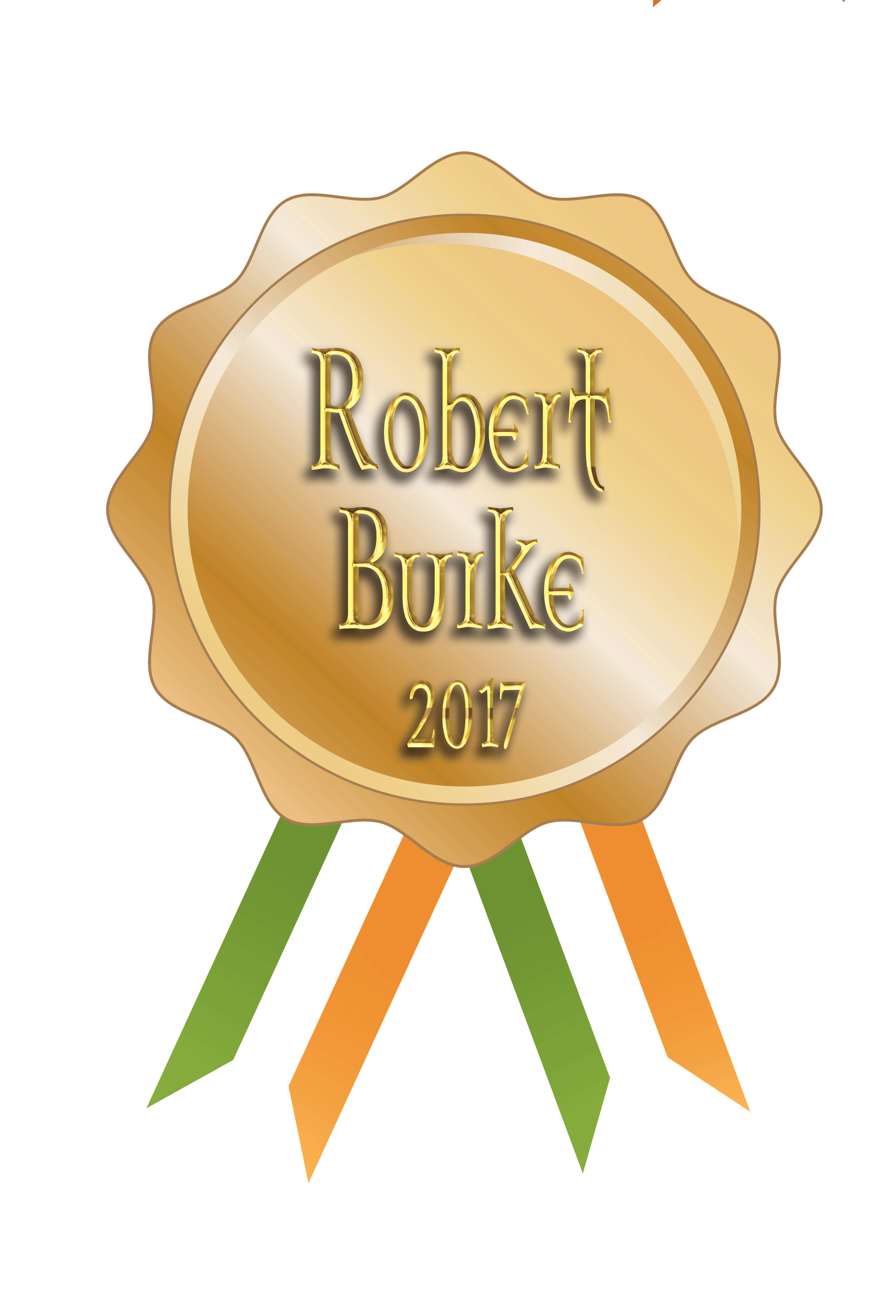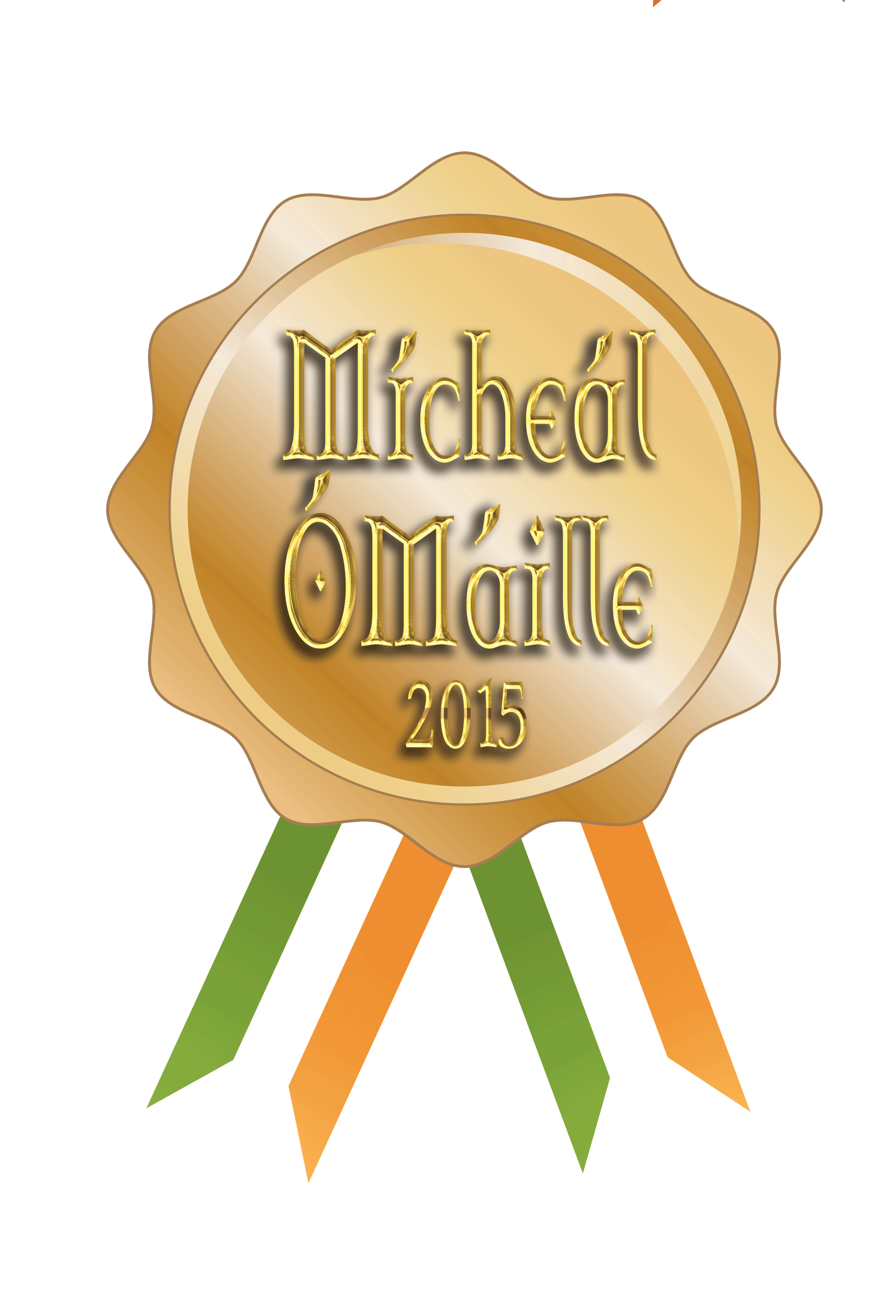
Douglas Hyde (Dubhghlas de hÍde) (1860-1949), known as An Craoibhín Aoibhinn ("The Pleasant Little Branch"), was a scholar of the Irish language who served as the first President of Ireland from 1938 to 1945. A founding member and first president of the Gaelic League, Douglas Hyde was a leading figure in the Gaelic Revival of the late 19th century. He continued to play a prominent role as Ireland entered the 20th century and later won independence.
Hyde was born of an Anglo-Irish family in Castlerea, County Roscommon, and raised in Frenchpark, where his father was the Church of Ireland rector at Tibohine. He was fascinated at an early age by the local people speaking Irish, and was inspired by them to study the language. While society at the time looked down on the Irish language as backward and old-fashioned (an attitude that was contributing to its rapid decline), Hyde’s love for the language and the people from which it sprang blossomed. His powerful determination to preserve Ireland’s linguistic and cultural past led him to found the Gaelic League, which championed the revival of the Irish language, and become its first president. Along with the Gaelic Athletic Association, the League inspired the dedication of young Irish generations to not only know the history and culture of their people but to strive for a re-flowering of this culture.
Douglas Hyde was elected first President of Ireland not just for his non-partisan reputation but because he was a symbol to Irish people of the Ireland of the past and the Ireland of the future they wished to build. Scholar, collector of folk songs, writer, Irish activist, politician, President – above all, Hyde was a simple man who loved the simple people of his youth speaking the Roscommon dialect of the Irish language, and who communicated his love to the entire nation.
The Council presents this award to an exemplary individual whose dedication to the Irish language continues the work of Dr. Douglas Hyde in preserving the rich legacy of Ireland’s ancient tongue and keeping it alive among the people of our world today.

Bob Burke, who boasts Irish grandfathers on both sides of his family, lived for many years in Bergen County as an active member of the Irish community. As did his brothers, he graduated from Trenton State College and became an industrial arts teacher. He taught at Pascack Hills High School for more than three decades, and was the head football coach there.
His interest in the Irish language stemmed from his original interest in the bagpipes, which he began playing in the 1970s as a member of a local pipe band. The titles of many songs, he says, were in Irish Gaelic or Scots Gaelic, which prompted his curiosity to learn more about the language. After listening to several Irish radio programs, his desire to learn the language grew.
He started learning Irish in the early eighties, when Liam O' Keefe was teaching a course at the Ridgewood Community School. Bob enrolled in the course and got hooked. In 1996, after years of study, he started teaching at Daltaí na Gaelige, an Irish language organization that has three immersion weekends and one immersion week each year. He started teaching Irish at the Ridgewood Community School about 12 or 14 years ago, where he continues to teach a weekly class.
When Bob began teaching Irish, he had only been to Ireland once, before he had begun learning the language. His Irish education had all taken place in the United States. That all changed in 2003, when he went to Innis Oirr (Inisheer), the smallest of the Aran Islands, for three weeks. In 2004 he enrolled in a two-week course for adult learners through Galway University at An Cheathru Rua. He enjoyed it so much he has gone back every year since then, and when the course is over, he returns to Innis Oirr for a week.
Bob Burke currently lives in New Hampshire and makes his faithful trip down the East Coast each week to teach Irish to adult learners like himself.

A native of Connemara, County Galway, Mícheál ÓMáille has worked to spread the Irish language in the U.S., Canada, and around the world as both a language teacher and a lecturer on Irish history and culture. He teaches Irish language immersion classes to all ages and skill levels, and was the featured Irish teacher at this year’s Catskills Irish Arts Week. He is a member of Daltaí na Gaeilge and is the regional Gaeilgeóir (Irish language officer) for the North American Province of Comhaltas Ceoltóirí Éireann.
As a teacher and lecturer, Mícheál ÓMáille spent years in China, Taiwan, and Korea, and has produced a lecture entitled My Decade in China based on his experiences and his discovery of many connections between the ancient Irish and Chinese cultures. In 1995, he worked with the Choctaw Nation of Oklahoma in preparation for a visit they were to receive from Mary Robinson, the President of Ireland, who was coming to express Ireland’s gratitude for the relief money the Choctaw sent to Ireland during the Famine. Mícheál served as a consultant regarding the Choctaw Nation’s language revival and presented a “Crash Course in Choctaw.”
A gifted entertainer, Mícheál has served as Seanachaí (storyteller) for the Irish-language theatre Taibhdhearc na Gaillimhe in Galway. He also starred in the one-man show “The Confessions of St. Patrick” at the Hamilton Theatre in Rahway, New Jersey. He has hosted the weekly Irish Hour on W.R.S.U., the radio station of Rutgers University, and has been a frequent guest on American Celtic TV. As both a historian and a poet, he speaks with authority on a wide range of subjects. In both English and Irish, he has delivered lectures on many topics, including the life and times of St. Patrick, the Irish fighting on both sides of the Civil War in the U.S., James Joyce’s Ulysses, and the Easter Rising of 1916.
Mícheál lives in Neptune, New Jersey, with his wife Mary Ellen. They are blessed with three children and seven grandchildren.




